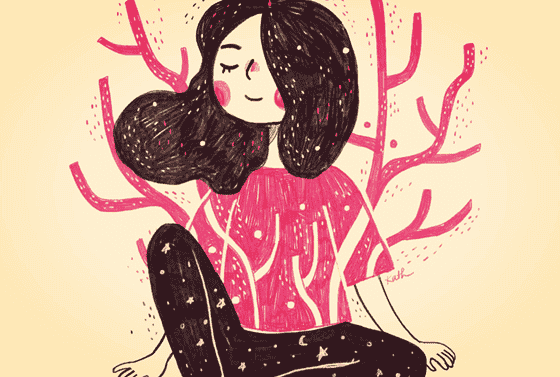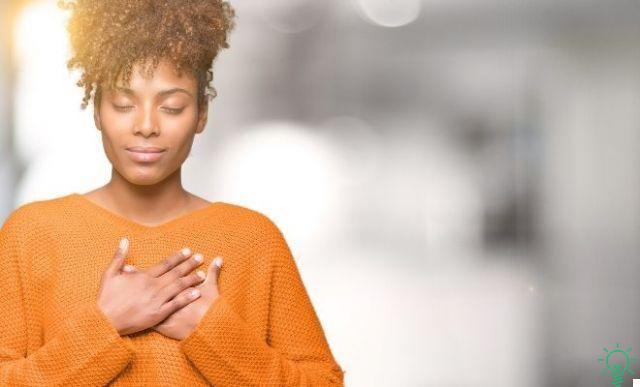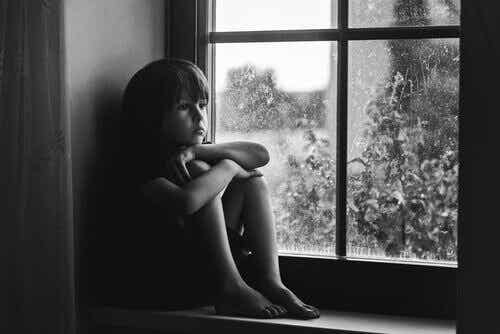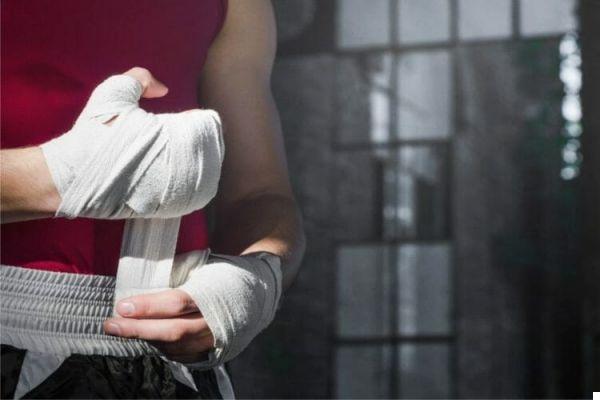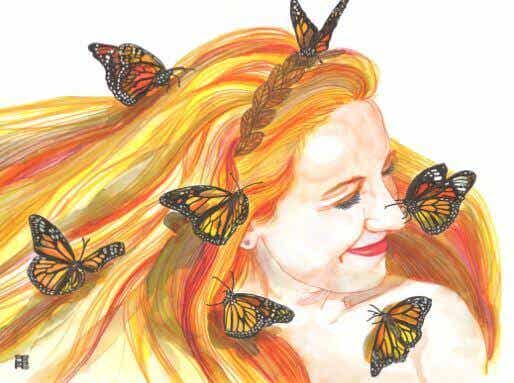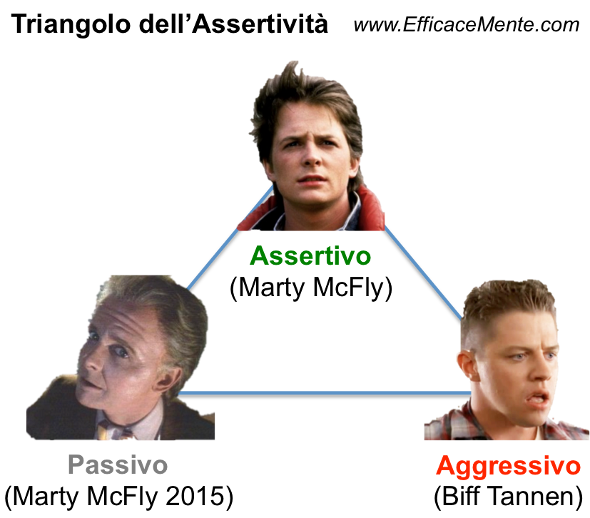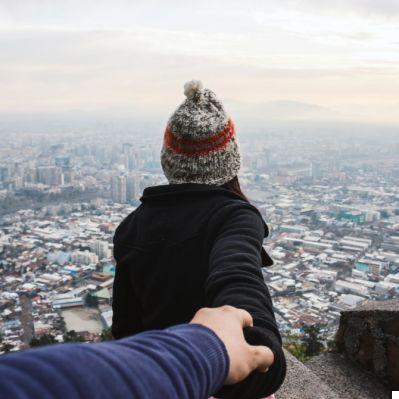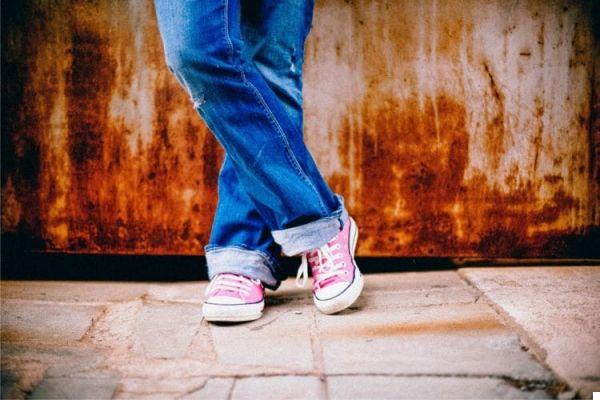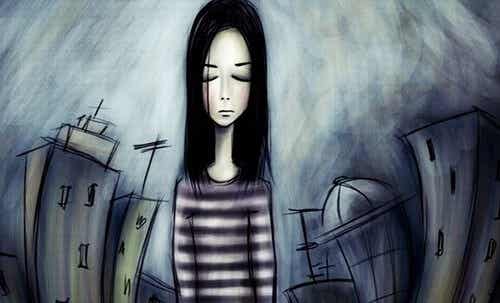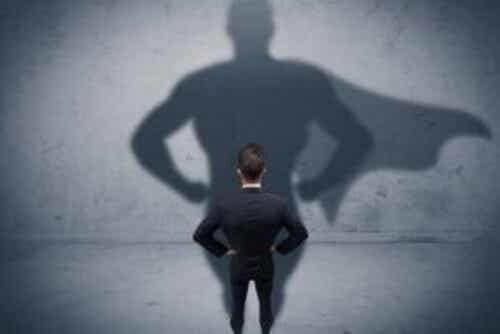Victimization, understood as that mask that draws attention to us, to how unfortunate we are and how bad we are, is very harmful.

Last update: February 11, 2020
Victimization, understood as that mask that draws attention to us, to how unfortunate we are and how bad we are, is very harmful. In most cases it becomes a strategy to take responsibility for what happens in our life. That is to say, we can even talk about a way to avoid growing up.
We may have already noticed this behavior in a member of our family who tended to isolate himself, remain alone and feel bad about it. Based on this experience, the following question might arise in us: Is there a relationship between isolation and victimhood?
When a situation gets out of hand, it is normal to feel lost and with little or no control over what happens. However, there is no reason why this should be absolutely dramatic (for example: not getting a job or not being invited by your friends to an event).
The discomfort that this causes in us can make us feel victims of circumstances. Yet, after a few hours or days, we must be able to remove this feeling from us. If this does not happen, we run the risk of adopting some unhealthy habits. One of these is isolation.
Victimization: Isolation is one of the ways in which it expresses itself
When we talk about isolation, we refer to a voluntary act. We decide to lock ourselves up at home and not see our friends for various reasons that have to do directly with ourselves. In these situations we often tend to deceive ourselves. We think that it is others who put us aside, when in reality it is we who avoid social commitments.
In this case we have to feel the need to feel important to someone, to feel that if we move away, the other will look for us. Right then we feel alone, without really being or without being alone before we walk away.
If you are acting as a victim, I would probably be treated as such.
-Paulo Coelho-
Isolation helps us to increase that feeling of victimhood, preventing us from accepting responsibility for what happens to us. But what weighs more? Isolation in victimhood or vice versa?
What we do know for sure is that isolation and victimhood feed each other. By isolating ourselves we will most likely end up feeling victims of what happens to us. If we feel victimized, the chances of ending up isolating ourselves from others are high.
Isolation and victimhood feed each other. When we distance ourselves from others, we may feel like victims and if at some point we feel like we are, we will most likely end up isolating ourselves.
Reasons why we distance ourselves from others
Although isolation is perceived as a fact that comes from being locked up in the house and not wanting to see anyone, it certainly goes beyond that. Below, we will see some of the reasons why we isolate ourselves and why this leads us to increase the feeling of which we are victims:
- We isolate ourselves from others to feel bad: although it may seem absurd, if we are victimists, we will isolate ourselves to enhance that feeling of "nobody wants me", "they ignore me", "they do not count on me", or "I am not worth anything".
- We are looking for a physical and emotional distance: locking yourself up at home or rejecting certain commitments is a way of not having contact with others. Seeing how others go on with their lives and that they respect our desire for isolation, giving us space, hurts and this is exploited to increase the feeling of victimhood.
- We wish to draw attention: isolation and victimhood can be exploited so that "others come to me". This does not usually occur, yet people who try to approach will always receive a negative or "no" response. This will make us feel even more victims, more than we are.
The comfort zone in isolation and victimhood
One of the reasons we struggle so hard to get out of that victim role we have adopted is that our comfort zone resides there. We complain, we cry, but we do nothing to change the situation we are facing.
As Maximiliano Hernández Marcos graciously says in his article titled Victimhood, a new lifestyle. characterization attempt, "This peak moment of victimhood in recent decades highlights the fact that we are not in the midst of a short-term social fashion, but in front of a dominant mentality. " If the situation is that bad, what can we do about it?
When we isolate ourselves, instead of saying "yes" to our friends' requests to go out at night we say "no" just to increase that "I feel lonely" feeling. The problem is that the only ones who feel bad and not happy are us.
Taking the first step: victimhood and how to get out of it
To get out of isolation and victimization, it is very important to start taking specific measures, for the application of which it is very important that a professional assist us. It will be the latter to stimulate the use of useful tools to get out of that well in which we have immersed ourselves and from which we think we can not get out.
The first step is the hardest to take, but it is the most valuable. To begin, we need to shake off everything that is making us feel like victims. To do this, a good idea is to review our beliefs, question them, and throw away those that offer us pain and suffering.
In addition to this, the time has come to make room for novelty (which can cost us dearly at first). The comfort zone can become particularly attractive and will always make us believe that "I don't like" or "I'm very tired" or "I feel uncomfortable" is fine. However, a journey into the unknown is worthwhile.




